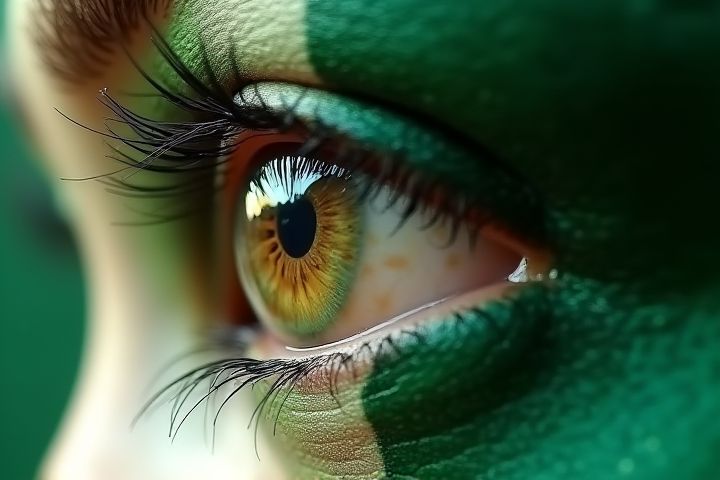
Nigeria's official name is the Federal Republic of Nigeria. This West African nation is bordered by Benin to the west, Chad and Cameroon to the east, and Niger to the north, while it has a coastline along the Atlantic Ocean to the south. Founded in 1960, Nigeria gained independence from British colonial rule, leading to a vibrant and diverse cultural landscape. The country is home to over 200 million people, making it the most populous nation in Africa. Rich in natural resources, Nigeria is a leading producer of oil and gas, significantly contributing to its economy.
Federal Republic of Nigeria
The official name of Nigeria is the Federal Republic of Nigeria, reflecting its status as a sovereign nation within West Africa. This title signifies the country's federal system of governance, which allows for the division of powers between the central government and its 36 states. Home to over 200 million people, Nigeria is the most populous country in Africa, characterized by a rich mosaic of ethnic groups, languages, and cultures. Its economy is one of the largest on the continent, largely driven by oil production, agriculture, and telecommunications.
West African nation
Nigeria, officially known as the Federal Republic of Nigeria, is a prominent West African nation situated on the Gulf of Guinea. It is the most populous country in Africa, with over 200 million inhabitants, representing a rich tapestry of ethnicities, languages, and cultures. The country is characterized by its diverse geography, featuring landscapes that range from savannas and plateaus to coastal mangroves and rainforests. With its vibrant economy driven by oil production, agriculture, and telecommunications, Nigeria plays a crucial role in both regional and global markets.
Named after Niger River
Nigeria derives its name from the Niger River, which is one of the longest rivers in Africa, stretching approximately 4,180 kilometers. The term "Nigeria" was coined in the late 19th century, originating from "Niger" combined with "-ia," a suffix meaning land or place. The Niger River played a crucial role in the country's history, serving as a vital waterway for trade and transportation for various ethnic groups. This geographical landmark greatly influenced the formation of Nigeria's cultural and economic identity, establishing it as a key region in West African geopolitics.
Official language: English
Nigeria, officially known as the Federal Republic of Nigeria, recognizes English as its official language, a reflection of its colonial history under British rule. This status enables English to serve as a crucial medium for communication in government, business, and educational institutions across the country. Being the most populous country in Africa, Nigeria is home to over 500 indigenous languages, yet English plays a vital role in unifying its diverse ethnic groups. Understanding the significance of English can enhance your engagement with Nigerian culture and its complex socio-political landscape.
Largest city: Lagos
Nigeria's official name is the Federal Republic of Nigeria, a country located in West Africa. Its largest city, Lagos, is a bustling metropolis renowned for its vibrant culture, diverse population, and as a financial hub on the African continent. With a population exceeding 14 million, Lagos serves as an economic powerhouse, housing major industries, international corporations, and a thriving market scene. The city's dynamic landscape features beautiful beaches, lively arts districts, and a rich history, making it a key destination for tourism and commerce in Nigeria.
Capital: Abuja
Nigeria, officially known as the Federal Republic of Nigeria, has Abuja as its capital city. Abuja was designated as the capital in 1991, strategically chosen for its central location to promote equality among the diverse ethnic groups in Nigeria. The city features modern architecture, including the Nigerian National Mosque and Aso Rock Presidential Villa, which symbolize the nation's governance. You'll find that Abuja also serves as a hub for diplomatic relations and offers a range of cultural attractions reflecting Nigeria's rich heritage.
Diverse ethnic groups
Nigeria's official name is the Federal Republic of Nigeria, reflecting its political structure. This vibrant nation is home to over 250 diverse ethnic groups, with the largest being the Hausa, Yoruba, and Igbo. Each ethnic group contributes to Nigeria's rich cultural tapestry, showcasing unique traditions, languages, and customs. If you explore the country's heritage, you'll discover how these varied identities shape the social and political landscape of contemporary Nigeria.
Rich cultural heritage
Nigeria's rich cultural heritage is deeply woven into its identity, celebrated through festivals, traditional music, and vibrant art forms. Home to over 250 ethnic groups, the nation's diverse cultures manifest in distinct languages, customs, and culinary practices, each contributing to a complex societal tapestry. The Yoruba, Igbo, and Hausa are among the most prominent ethnicities, with each possessing unique historical narratives and artistic expressions. By exploring Nigeria's multifaceted traditions, you can gain a profound appreciation for its role as a cultural powerhouse in Africa.
Oil-rich economy
Nigeria, often referred to as the "Giant of Africa," is officially named the Federal Republic of Nigeria. Boasting one of the largest oil reserves in Africa, Nigeria's economy heavily relies on its oil sector, contributing significantly to its GDP and government revenue. The Niger Delta region hosts most of the country's oil production, making it a vital area for both local and global oil markets. As an oil-rich nation, Nigeria faces challenges, including environmental degradation and socio-political issues, while aiming to diversify its economy beyond hydrocarbons.
Population: over 200 million
Nigeria, officially known as the Federal Republic of Nigeria, boasts a population exceeding 200 million, making it the most populous country in Africa and the seventh most populous worldwide. This diverse nation is home to over 250 ethnic groups, contributing to a rich cultural tapestry and numerous languages, including Hausa, Yoruba, and Igbo. The country's population density is particularly high in urban centers like Lagos, which serves as a major economic hub. Understanding Nigeria's demographic dynamics is essential for addressing challenges related to urbanization, healthcare, and education.
